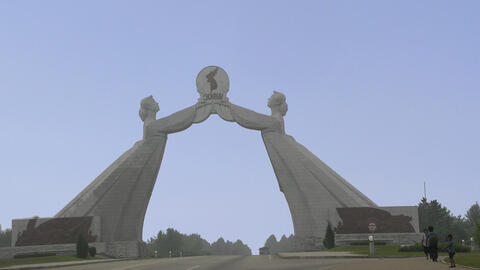APARC Research - Reengaging North Korea

Reengaging North Korea
THIS PROJECT IS NO LONGER ACTIVE
Research Focus
Rapidly changing circumstances continue to shape relations on the Korean peninsula and in East Asia. The constant flux of political, social, and economic affairs in the region has also created difficulties for long-standing alliances. The Reengaging North Korea research project examines the interests and policy environments of South Korea, North Korea, and their neighbors. It addresses issues including the North Korean nuclear problem, U.S.-DPRK relations, the U.S.-ROK alliance, the rise of China, and Korean reunification. It builds upon the first phase of this research effort, Engaging North Korea.
In its new phase, the project’s primary goal is to better understand the future domestic and global implications of North Korea’s political circumstances and social conditions given recent developments and the apparent detente on and around the Korean peninsula. Of particular importance in this context are seemingly improved inter-Korean relations, North Korea’s supposed commitment to denuclearization, and the new challenges that the U.S.-ROK alliance faces in coordinating a North Korea policy that is agreeable to both countries and to the conditions of the alliance.
The North Korea we are dealing with today—however amiable it may seem toward its neighbors and sincere in its commitment to denuclearize—is no longer a country with nuclear ambitions, but rather a de facto nuclear power with weaponry as well as the techniques and manpower required to assemble new weapons at any time. This makes the international community’s long-held aspiration for “complete, verifiable, and irreversible denuclearization” on the part of North Korea a highly unrealistic goal. The long-term objective for the Korea problem should instead be to transform North Korea into a normal state that no longer sees the need to pursue nuclearization for deterrence, survival, or any other reason. This research effort therefore investigates ways to promote sustainable reengagement of the North by all countries involved, especially by South Korea.
Gi-Wook Shin
Publications
The North Korean Conundrum
Shorenstein APARC, 2021
Commentaries and Opinion Pieces
How to Keep the Ball Rolling on North Korean Negotiations
East Asia Forum, May 2019
The Second Trump-Kim Summit Must Settle the Big Questions
The National Interest, February 2019
With North Korea, Let’s Not Forget the Big Picture
The Diplomat, June 2018
A New Start or a Rerun on the Korean Peninsula?
East Asia Forum, May 2018
North Korea Summit Diplomacy Should Lead to 4 Party Talks
The Diplomat, March 2018
Moon’s Bet on the Olympics: What Comes Next?
East Asia Forum, February 2018
See also:
CVID Approach to North Korea’s Nuclear Problem Faces Significant Challenges, APARC website
Related Events
North Korea and the World in Flux
March 2019
The eleventh annual Koret Workshop convened experts who reflected on the stumbling blocks to the process kicked off by the 2018 ROK-DPRK and US-DPRK summits and on the prospects for overcoming them.
Stanford Panel Discusses North-South Korea Summit and What Happens Next
April 2018
North Korea 2020
April 2018
The tenth annual Koret Workshop brought leading scholars and professionals from Asia and across the United States to Stanford to envision what North Korea would and should look like by the year 2020.


